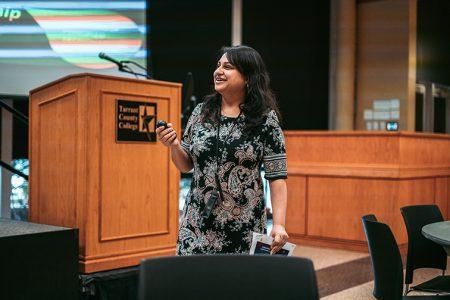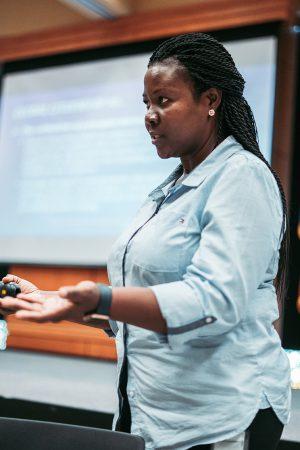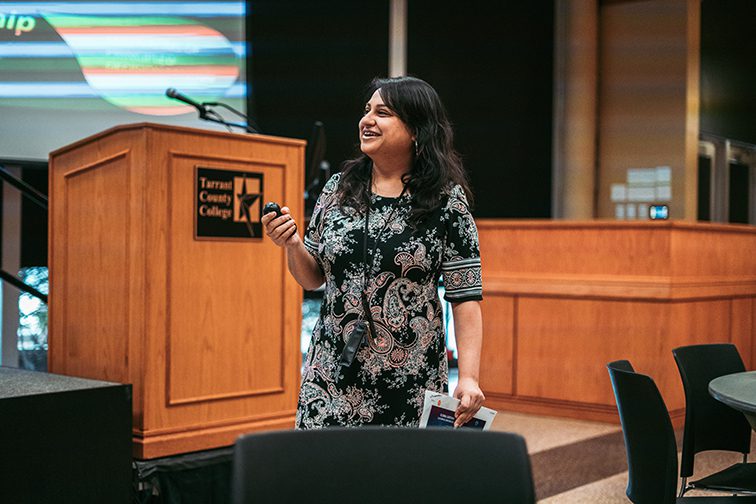| January 22, 2020 | Jill Bold | editor-in-chief |
|---|

Recent political events have left students concerned about global relations and empathy around the globe. SE counselor Divya Patel and SE academic adviser Sheila Addo joined forces to present Global Citizenship: Global Gateway Jan. 15 on SE Campus.
“Our vision is to explore the psychological and sociological aspect of global citizenship by challenging your perspectives,” Patel said.
This learning series presented by the SE advising and counseling center shows how to blend college life with a worldwide perspective. Patel and Addo want students to be able to have stimulating and conversations within a safe space.
The program will help students gain a global perspective and potentially earn a certificate of completion. Attending all four seminars will arn attendees this certificate, which can be a valuable part of any resume.

“Last semester, 15 people got their certificates,” Patel said.
Patel explains the concept of global citizenship as a way of thinking and having self-awareness and awareness of others.
They did not delve into purely political or religious discourse in this workshop but indicated that sometimes “some of these conversations will incorporate that,” Patel said.
According to Addo, awareness of others in part can be simply understanding some of the unwritten rules of the culture. Knowing in which cultures it is acceptable to have eye contact, whether or not to shake hands, or what title is used to address different people in their separate roles
helps global citizens decide how to engage with others.
“The practice of global citizenship is, for many, exercised at home, through engagement in global issues or with different cultures in a local setting,” Patel said.
Sometimes it’s not always clear what the unwritten rules are. Melody Soroka attended the workshop and shared her perspective.
“It’s the gray stuff, the stuff in between,” Soroka explained. “And it’s different for different groups.”
According to Patel, the key to breaking through cultural barriers is first to acknowledge but then to reject two fundamental lies. First, as a society, we need to reject the concept that if you disagree with a person’s lifestyle, then you likely hate or fear them. Secondly, loving someone doesn’t mean you agree with all of their values and beliefs.
“Both are nonsense, you don’t have to compromise your convictions to be compassionate,” Patel said.
Addo explained how to use global citizenship and empathy to guide principled decision-making in college, professional careers, within one’s own culture and globally.
“Critical thinking, cultural empathy, and ethical systems and choices are an essential foundation to principled decision making,” Addo said.
The remaining three seminars will be held on SE Campus. Feb. 19 workshop will introduce 60 minutes around the globe, the March 18 seminar will explore cultural immersion, and April 15 workshop will discuss pop culture in academic success to complete the series.

